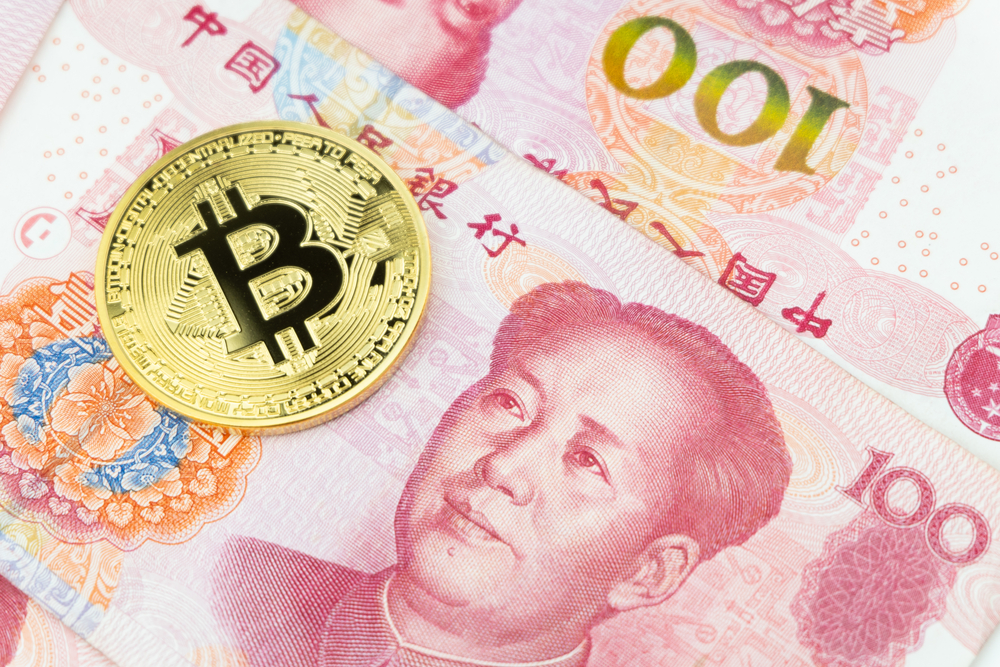The Chinese government has recently implemented the biggest crackdown on crypto since 2017. Chinese investors in cryptocurrency are paying little attention. It is this attitude that underscores but one of the challenges facing Beijing as it attempts to put the brakes on the speculative boom in digital assets.

When the crackdown was announced, there was an instant “knee jerk” reaction. The selling of crypto has given way to a recovery on the OTC platforms that crypto traders in China have been using since exchanges were shuttered in 2017.
A key guide to sentiment in the country is the X-Rate between the RMB (Renminbi) and Tether. The exchange rate between the two fell considerably more than four percent after the initial warning by the government. Tether has since rebounded, recouping more than half the initial loss.
Communist Party Concerns
China ramped up the crackdown after a noticeable surge in crypto activity. The surge in Bitcoin and other tokens heightened the concerns of the Party. The Communist Party expressed serious concern over the potential for fraud, losses by investors, and money laundering. However, the rather difficult nature of crypto transactions on local OTC platforms makes it difficult for authorities to enforce an across-the-board ban.
This news will provide some relief to crypto enthusiasts around the world. There was significant worry amongst the crypto believers that the drop in Chinese buying power contributed extensively to the almost $1 trillion selloff in Bitcoin and other digital assets from their record highs in mid to late May.
Bitcoin Ownership in China
As of the crackdown on crypto exchanges in 2017, Chinese investors owned approximately seven percent of the world’s supply of Bitcoin, and, on top of that, accounted for eight out of 10 trades. The ban has made it difficult, if not impossible, to gauge what the numbers are now. However, Chinese investors are believed to maintain a healthy presence in the market using domestic OTC platforms and offshore venues that are accessed using VPNs (virtual private networks).
As domestic trading of Yuan and digital money takes place in two separate stages, it is difficult for the authorities in China to track movement.
Step one takes place on over-the-counter platforms. Using platforms operated by firms such as Huobi and OKEx, traders make bids and offers. Once a price has been agreed between parties, a separate payments platform operated by a bank or a company such as Ant Group is employed, sending yuan to the seller. The OTC platform usually holds the digital coins until the payment in yuan has cleared. Once this happens, the digital currency is transferred to the buyer. Regulators in China cannot connect the dots.
With the Yuan leg of the transaction happening in China, the risk of capital outflow is low. Although this is the case, the government still warns financial firms, as well as individual investors, to stay well away from cryptocurrencies.
Printed Warnings Being Distributed
According to Bloomberg, printed warnings are being distributed by the police in Beijing. The notices warn of the potential risks associated with crypto. Some of the latest scams in the country involve virtual currencies. The police have let it be known that anyone having difficulty in knowing what to do should contact the police.
Some investors in crypto have made claims, yet verified, that they have been summoned by the local authorities and given a warning about the risks associated with crypto investing. One such investor was told by the authorities that he had to sell his holdings. Another investor was ordered to remove the trading app from his phone.
P2P Crackdown
Two years ago, the police in China were successful in cleaning up the peer-to-peer lending business. The police use this success as a model for its crackdown on crypto. The P2P business was purged after fraudulent activity and defaults got out of hand, in some cases leading to street protests. During its “heady days,” P2P had more than 50 million users and an outstanding loan portfolio of more than $150 billion.
The wild price swings of crypto in the last month or so have left a mark. One crypto investor from Dalian killed his young daughter and then, with his wife, tried to take their own lives after losing the yuan equivalent of $3.1 million U.S. dollars on a leveraged bet taken a year ago.
ChesWorkShop commits to presenting fair and reliable information on subjects including cryptocurrency, finance, trading, and stocks. However, we do not have the capacity to offer financial guidance, advocating instead for users to conduct their own diligent research.

